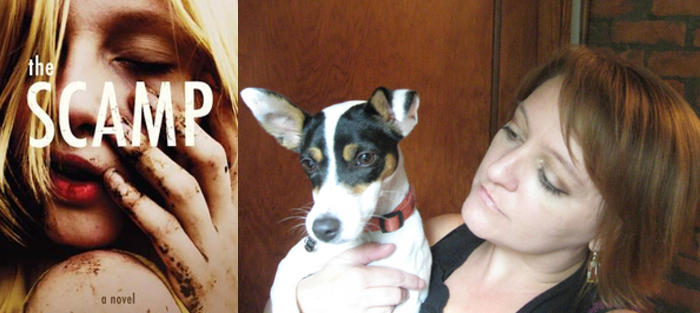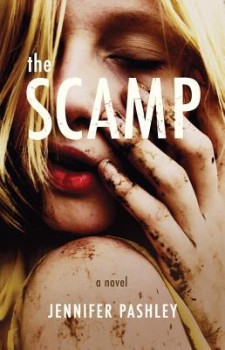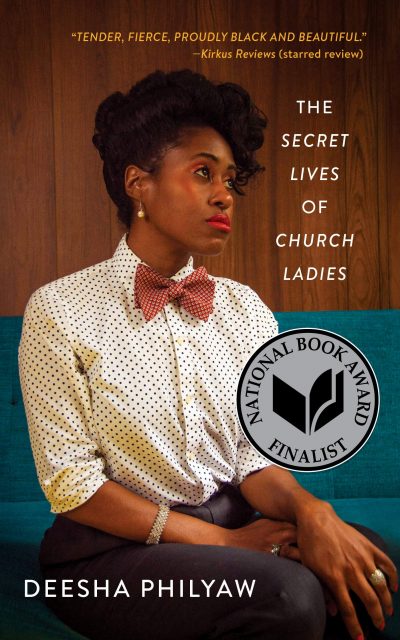Jennifer Pashley and I first met in a fiction workshop in Binghampton University back in 2008, when we were both working with the historical novelist, John Vernon. She somehow remembered my name from an issue of Salt Hill we’d both appeared in the year before, and I remembered reading her amazing story, “Postfontaine,” from the same table of contents. Bolted together by the details of a dysfunctional family and the ritual of autoerotic asphyxiation, Pashley’s story was an earnest look at how desire between people could trespass over taboo, and it was good to have met a writer with tastes as lurid as my own.
At this point in her career, Pashley had already released her first collection of short stories, States (Lewis-Clark Press, 2007), the title story of which was the winner of the 2005 Red Hen Press Award for Fiction. Filled with the heartbreaking lives of the downtrodden, States featured the lush narratives and the dark tragedies that Pashley would become known for in her work. In 2013, her gift for giving voices to forgotten women continued on into The Conjurer (Standing Stone), her second collection, which was met with high praise from fellow authors like Frederick Barthelme, Tina May Hall, and Aimee Bender, and which featured stories like “Something Good,” the winner of the 2009 Mississippi Review Prize, and “Angels,” which Carve Magazine awarded the Esoteric Award in LGBT Fiction, in 2012.
All this time, as well, Pashley was busy sculpting out a manuscript concerning both the disappearance of young women up and down the Appalachians and the life of a girl, Rayelle Reed, whose own sad story could’ve very well made her one of the victims, had fate not intervened. Published this August by Tin House Books, Pashley’s debut novel, The Scamp, alternates chapters between Rayelle and her cousin, Khaki, as the two weave themselves into the bleak histories of the dead and the disappeared. Journaling the lives of these young and absent women, too, is Couper Gale, a newspaperman who takes up with Rayelle on the search for a serial killer.
Interview:
Barrett Bowlin: Since we’re drinking, let’s start off with that. Alcohol figures prominently in The Scamp, both as a way to make characters more comfortable and with allowing them to make mistakes. How would you say alcohol figures into your short stories and your novel as a plot device?
Jennifer Pashley: It’s not purposeful. It ended up becoming part of the plot in The Scamp, especially where it figures into Rayelle’s past. But it’s one of the things that I often find is present in conversations. For example, I’ve also had a lot of characters who were smokers and who have gone through a lot of cigarettes. There’s something very social and meditative about both acts. Sitting and drinking with somebody is a good device for getting into further conversation. It’s the same thing with a cigarette: it’s an interruption and it’s a pacifier at the same time.
You’ve had down-on-their-luck, sad-story girls a lot in your stories before, but this was the first time I’d seen someone as slick and ragged as Khaki, our serial killer, pop up in your work. What was the invention of Khaki like? How did she come about?
She was always the “other” character in the book, even after five significant drafts. Her violent tendencies weren’t as specific in earlier drafts—they were a little bit different—but I’ve started to see her as someone who had a really deranged motive. She wasn’t just a zero in the sense of doing drugs or stealing from people. Beyond that, she had a savior complex. She knew what her actions were and what she was doing, but there was a terrible irony in calling herself a “safe house.” It’s a particularly grandiose and deranged idea that she has. But once I started to explore the bigger elements of Khaki, she became something bigger than the fucked-up cousin. Everyone has that person in the family, or at least they think they do, so I wanted to take that kind of thing and explode it into something crazy.
With the book, I wondered how people would react to violence that was perpetrated by women. I know it’s different; it’s not Cormac McCarthy. It’s not a bunch of dudes with guns.
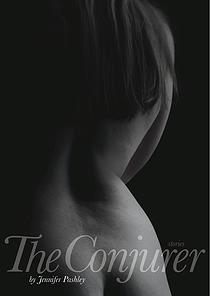 And what about Rayelle? Her background is heartbreaking, too, and if I had only encountered her, I feel like she would have been a prominent addition to States or The Conjurer. What made you want to pluck her out of your stories and drop her into the middle of this mystery?
And what about Rayelle? Her background is heartbreaking, too, and if I had only encountered her, I feel like she would have been a prominent addition to States or The Conjurer. What made you want to pluck her out of your stories and drop her into the middle of this mystery?
Well, those characters are actually my people, but Rayelle’s story felt bigger to me. She could’ve been a short story, for example, where she flirts with the bartender. Her introduction was a scene in somebody’s shitty life, which is what a lot of my stories are. A lot of them focus on a moment where a decision is made. But her story felt bigger to me, and I wanted to explore how she got there.
In my stories, I’ve spent so much time showing clips of the present, and I wanted to take somebody like that and go beyond what was happening to her now. How did this happen? How did she end up this way? Her situation is generations and generations of family in poverty. Her mom isn’t any better off. Her aunt and her cousins aren’t any better off. This kind of cycle just goes on in these little towns, where women have babies too young and don’t have the opportunities to go to college or get out and getter better jobs. They’re just trapped by this post-industrial world. There’s nothing there for them beyond menial work and, for a lot of them, having kids.
Along those lines, tell me about South Lake, the setting for a good portion of the book. What were the family vacations like when you were a kid? How did they inform Khaki, Rayelle, and Couper’s travels in the novel?
I did a lot of traveling when I was a kid, a lot of the same kind of travel Rayelle did. It wasn’t fancy travel as we wouldn’t fly anywhere, though. We’d just pack a bunch of stuff into the back of the car, and my mom would make sandwiches. (Side note: my mom was not passed out in the back seat on gin.) It was economy travel: put everything in the car and drive. We’d make no reservations, and we’d drive ten hours a day, wind up in the middle of Indiana, for example, and come to a roadside motel probably called “The Thunderbird.” And you would just show up and stay.
We drove cross-country a lot of times, to places like South Dakota. I don’t have any real inkling as to why, except that I think it was my dad’s wanderlust. He did spend time, I remember, when he was working as a professional musician, on the road, so there was always an element of recreating that past. But the other thing about my family is that we had a weird penchant for visiting things that were awful. We would go three times a year (if not more) to this terrible town in central Pennsylvania where my dad grew up, and it was just a terrible place. It was no one’s destination. So we would go there and stay at a motel that was at the bottom of a hill, right below a prison. But it was our getaway. It was a very weird thing, and I now have this strange affinity for shitty Pennsylvania towns. The shittier the better.
What kind of research was necessary for you to conduct in order to write the book?
I don’t actually do a lot of research when I write. What I do is I research as I go. For example, mid-scene, I’d have to stop and ask, “How do you take a body apart?” And then I would Google it. I only dip in as far as I need to in order to get the language. I don’t spend a lot of time heavily researching anything other than things like “How do you take a body apart?” It’s not a research-heavy novel: it’s not historical, it’s not technical in any way. It was fly-by research.
But I remember when I got the edits, one of the questions was, “Does it really cost $80 to fill a Torino with gas?” Yes, absolutely. And I also do a lot of visual research. It’s not a lot, but depending on where the characters were in the trajectory of the story, I would go look at landscape pictures or photos of campgrounds in Tennessee. I had a lot of images to think about.
What authors did you have to read in order to be able to write The Scamp? Who’s most informed your work here and how?
When people ask me about my influences or what I’ve been reading, I tell them the bigger influence was music. I know I owe all of my way of writing about sad people and shitty towns to Raymond Carver and his use of minimal language. So there’s the Raymond Carver answer, but then there’s the unusual answer in that I owe something to Paradise by Toni Morrison, in realizing how many different points of view I could have in this book.
I really do love Paradise. I love the religious undertones, and I love the problematic women pitted against the town. I wanted to find out what happens when you just let women be “wild.” I definitely owe something to that. It’s not a language thing, but it’s more of a spiritual thing: she showed me what could be possible. And I remember I was listening to a lot of older Ryan Adams, a lot of twangy, depressing, break-up songs because those felt like what this book is. The album that was the most nostalgic, what it felt like to write this book, was Cold Roses.
Going back to Khaki, you’re right; you don’t see a lot of that type of violence, of women against women. You don’t see yourself rooting for one of the perpetrators of such violence.
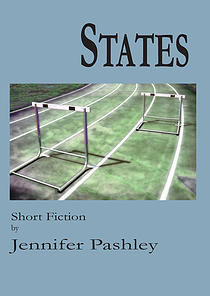 I knew I wanted her to be a serial killer. And this goes back to some of the research we were talking about earlier, except there was one thing I forgot to mention. I read one of Ann Rule’s books for two reasons: one, because that’s really the type of writing that Couper is doing in the novel, and, two, Rule really does write the best account of serial killers. I read her first book about Ted Bundy, and it was insanely good. It was an amazing narrative. Even though she was somebody from the outside, she was still able to write about what he did and how he was doing it so well. People eat up true crime books, but I don’t think she got enough credit for writing the way she did. It is truly an amazing narrative.
I knew I wanted her to be a serial killer. And this goes back to some of the research we were talking about earlier, except there was one thing I forgot to mention. I read one of Ann Rule’s books for two reasons: one, because that’s really the type of writing that Couper is doing in the novel, and, two, Rule really does write the best account of serial killers. I read her first book about Ted Bundy, and it was insanely good. It was an amazing narrative. Even though she was somebody from the outside, she was still able to write about what he did and how he was doing it so well. People eat up true crime books, but I don’t think she got enough credit for writing the way she did. It is truly an amazing narrative.
I read her book, too, to think about how somebody could kill in one place and then move onto another place and then kill again. I read that so I could understand how someone could have that past and leave behind dismembered bodies. I knew Khaki was that bad. So the thing I needed to figure out had less to do with the technical details and more with the psychological details. How do you get there? How do you get to be that person? I needed to know what was it like to lay hands on a girl and have her feel dead to me. She needed to kill but also to have those girls’ ends be better than what they would have had otherwise.
The idea that Khaki could provide a better death for these women than, say, their incredibly abusive husbands or boyfriends was brilliant.
It’s not even necessarily that the girls she picked out were going to be killed by somebody else, but their ends would have been awful. Khaki, though, allowed them to go out on top. She would take care of you for a few days, make you feel amazing and wonderful, and then she would kill you.
Similarly, sensuality and lust are driving forces in your novel, and you’ve written before about (and quoted Simone de Beauvoir on) how limiting ‘heterosexuality’ and ‘homosexuality’ are as titles. What do you think you were wanting to express about sexuality when you were writing The Scamp?
I didn’t ever want the book to be didactic, but I’m always trying to convey the reality that I know: that sexuality is more fluid than anybody usually gives it credit. You can’t nail things down to one thing or another. There are so many non-binary factors at work, and that’s always my undercurrent. I was trying to convey that idea about sexuality, but it’s not specific to this book.
Would you say you’ve had any events from your past that have informed Rayelle and Khaki’s relationship, or Couper and Rayelle’s relationship, or anything that you would need in order to inform the sexuality in the book as much as possible?
People always ask, “Did this happen to you?” No, this particular event didn’t happen, but other things did happen, and they’re usually the events you didn’t expect. Obviously, I didn’t have a baby daughter who died. It’s never the big stuff, but there are smaller, weirder things in there that I pulled in. I grew up in proximity to people a lot like these characters, in the sense that they are crafty and manipulative. There have been plenty of similarities. Characters like Doe, for example, are not unfamiliar to me; they’re always hustling a deal, and they’re always a little shady.
So would you classify yourself as someone who writes LGBT fiction? Come to think of it, what do you think about the title of that “non-genre?”
I wish the genre could be called “Fiction by People Who Write Frankly about Gender and Sexuality.” Sometimes relationships are straight, and sometimes they’re not. That idea of expressing sexuality as such is not something that I set out to do. But it’s something that’s part of me. I’m never going to write a Jane Austen novel. Everything is more complicated to me than that.
I know you’re always busy on the next project, but I have one last question: what are you working on right now?
There is definitely another novel in the pipeline. I have a complete novel that’s being devised right now, so hopefully that will be the next thing. I’ve talked recently about all of my short stories, the two collections, and how the rights have reverted back to me, so I’m hoping on combining them and re-releasing them to a larger following. And even though those are two separate collections, those stories definitely belong together. But there are definitely more novels. I have at least three more books in me, and I already know what they are.

